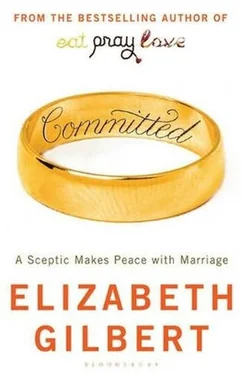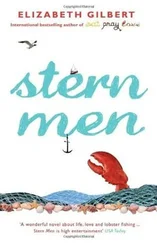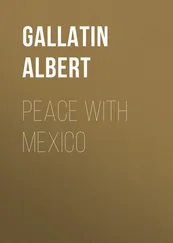Moreover, our financial situation was worrisome. Eat, Pray, Love was less than a year away from becoming a lucrative best seller, but that welcome development had not yet occurred, nor did we anticipate its ever occurring. Felipe was now completely cut off from his income source, so we were both living off the fumes of my last book contract, and I wasn’t sure how long that would hold out. A while, yes-but not forever. I had recently begun working on a new novel, but my research and writing had now been interrupted by Felipe’s deportation. So this is how we ended up going to Southeast Asia, where two frugal people can feasibly live on about thirty dollars a day. While I won’t say that we exactly suffered during this period of exile (we were hardly starving political refugees, for heaven’s sake), I will say that it was an extremely odd and tense way to live, with the oddness and tension only heightened by the uncertainty of the outcome.
We wandered for close to a year, waiting for the day when Felipe would be called to his interview at the American Consulate in Sydney, Australia. Flopping in the meantime from country to country, we came to resemble nothing more than an insomniac couple trying to find a restful sleeping position in a strange and uncomfortable bed. For many anxious nights, in many strange and uncomfortable beds indeed, I would lie there in the dark, working through my conflicts and prejudices about marriage, filtering through all the information I was reading, mining history for comforting conclusions.
I should clarify right away here that I limited my studies largely to an examination of marriage in Western history, and that this book will therefore reflect that cultural limitation. Any proper matrimonial historian or anthropologist will find huge gaps in my narrative, as I have left unexplored entire continents and centuries of human history, not to mention skipping over some pretty vital nuptial concepts (polygamy, as just one example). It would have been pleasurable for me, and certainly educational, to have delved more deeply into an examination of every possible marital custom on earth, but I didn’t have that kind of time. Trying to get a handle on the complex nature of matrimony in Islamic societies alone, for instance, would have taken me years of study, and my urgency had a deadline that precluded such extended contemplation. A very real clock was ticking in my life: Within one year-like it or not, ready or not-I had to get married. That being the case, it seemed imperative that I focus my attention on unraveling the history of monogamous Western marriage in order to better understand my inherited assumptions, the shape of my family’s narrative, and my culturally specific catalogue of anxieties.
I hoped that all this studying might somehow mitigate my deep aversion to marriage. I wasn’t sure how that would happen, but it had always been my experience in the past, anyhow, that the more I learned about something, the less it frightened me. (Some fears can be vanquished, Rumpelstiltskin-like, only by uncovering their hidden, secret names.) What I really wanted, more than anything, was to find a way to somehow embrace marriage to Felipe when the big day came rather than merely swallowing my fate like a hard and awful pill. Call me old-fashioned, but I thought it might be a nice touch to be happy on my wedding day. Happy and conscious, that is.
This book is the story of how I got there.
And it all begins-because every story must begin somewhere-in the mountains of northern Vietnam.
Marriage and Expectation
A MAN CAN BE HAPPY WITH ANY WOMAN AS LONG AS HE DOES NOT LOVE HER.-Oscar Wilde
A little girl found me that day.
Felipe and I had arrived in this particular village after an overnight journey from Hanoi on a loud, dirty, Soviet-era train. I can’t rightly remember now why we went to this specific town, but I think some young Danish backpackers had recommended it to us. In any case, after the loud, dirty train journey, there had been a long, loud, dirty bus ride. The bus had finally dropped us off in a staggeringly beautiful place that teetered on the border with China-remote and verdant and wild. We found a hotel and when I stepped out alone to explore the town, to try to shake the stiffness of travel out of my legs, the little girl approached me.
She was twelve years old, I would learn later, but tinier than any American twelve-year-old I’d ever met. She was exceptionally beautiful. Her skin was dark and healthy, her hair glossy and braided, her compact body all sturdy and confident in a short woolen tunic. Though it was summertime and the days were sultry, her calves were wrapped in brightly colored wool leggings. Her feet tapped restlessly in plastic Chinese sandals. She had been hanging around our hotel for some time-I had spotted her when we were checking in-and now, when I stepped out of the place alone, she approached me full-on.
“What’s your name?” she asked.
“I’m Liz. What’s your name?”
“I’m Mai,” she said, “and I can write it down for you so you can learn how to spell it properly.”
“You certainly speak good English,” I complimented her.
She shrugged. “Of course. I practice often with tourists. Also, I speak Vietnamese, Chinese, and some Japanese.”
“What?” I joked. “No French?”
“Un peu,” she replied with a sly glance. Then she demanded, “Where are you from, Liz?”
“I’m from America,” I said. Then, trying to be funny, since obviously she was from right there, I asked, “And where are you from, Mai?”
She immediately saw my funny and raised it. “I am from my mother’s belly,” she replied, instantly causing me to fall in love with her.
Indeed, Mai was from Vietnam, but I realized later she would never have called herself Vietnamese. She was Hmong-a member of a small, proud, isolated ethnic minority (what anthropologists call “an original people”) who inhabit the highest mountain peaks of Vietnam, Thailand, Laos, and China. Kurdish-like, the Hmong have never really belonged to any of the countries in which they live. They remain some of the world’s most spectacularly independent people-nomads, storytellers, warriors, natural-born anticonformists, and a terrible bane to any nation that has ever tried to control them.
To understand the unlikelihood of the Hmong’s continued existence on this planet you have to imagine what it would be like if, for instance, the Mohawk were still living in upstate New York exactly as they had for centuries, dressing in traditional clothing, speaking their own language, and absolutely refusing to assimilate. Stumbling on a Hmong village like this one, then, in the early years of the twenty-first century is an anachronistic wonder. Their culture provides a vanishingly rare window into an older version of the human experience. All of which is to say, if you want to know what your family was like four thousand years ago, they were probably something like the Hmong.
“Hey, Mai,” I said. “Would you like to be my translator today?”
“Why?” she asked.
The Hmong are a famously direct people, so I laid it out directly: “I need to talk to some of the women in your village about their marriages.”
“Why?” she demanded again.
“Because I’m getting married soon, and I would like some advice.”
“You’re too old to be getting married,” Mai observed, kindly.
“Well, my boyfriend is old, too,” I replied. “He’s fifty-five years old.”
She looked at me closely, let out a low whistle, and said, “Well. Lucky him.”
I’m not sure why Mai decided to help me that day. Curiosity? Boredom? The hope that I would pass her some cash? (Which, of course, I did.) But regardless of her motive, she did agree. Soon enough, after a steep march over a nearby hillside, we arrived at Mai’s stone house, which was tiny, soot-darkened, lit only by a few small windows, and nestled in one of the prettiest river valleys you could ever imagine. Mai led me inside and introduced me around to a group of women, all of them weaving, cooking, or cleaning. Of all the women, it was Mai’s grandmother whom I found most immediately intriguing. She was the laughingest, happiest, four-foot-tall toothless granny I’d ever seen in my life. What’s more, she thought me hilarious. Every single thing about me seemed to crack her up beyond measure. She put a tall Hmong hat on my head, pointed at me, and laughed. She stuck a tiny Hmong baby into my arms, pointed at me, and laughed. She draped me in a gorgeous Hmong textile, pointed at me, and laughed.
Читать дальше












